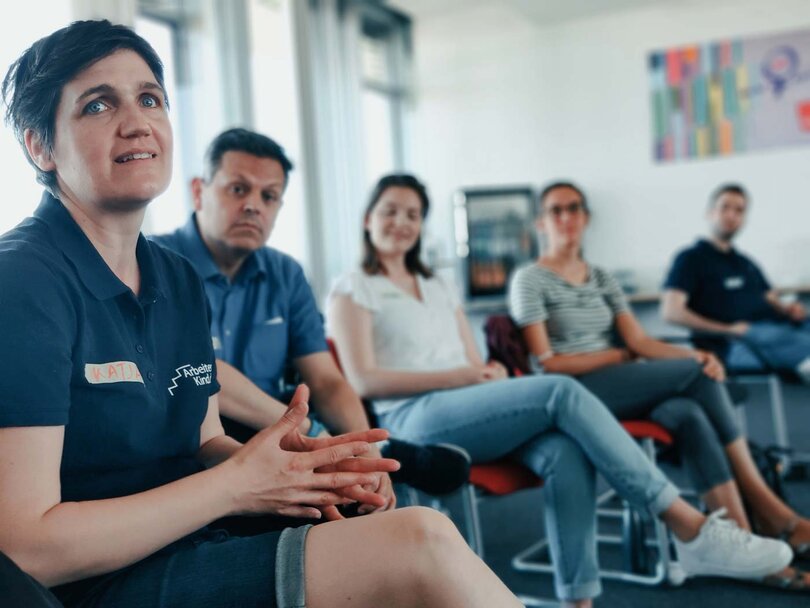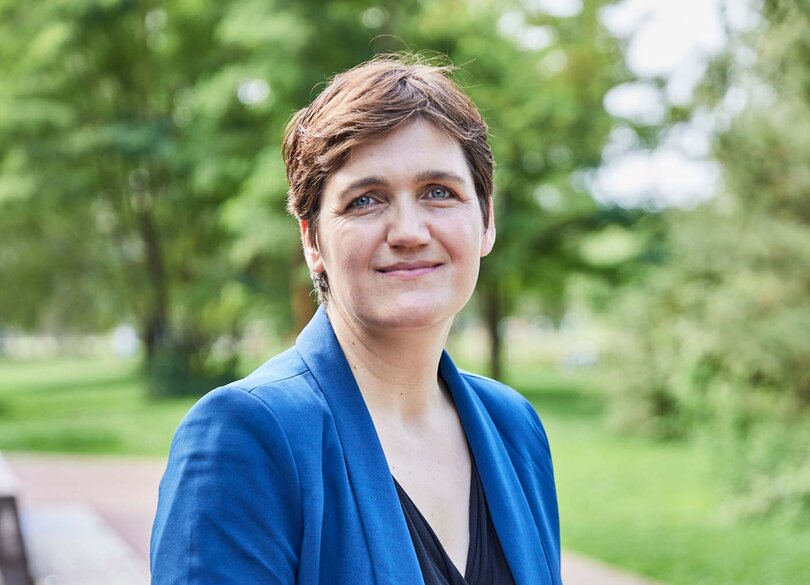by Katja Urbatsch
First-Generation Students Also Need Experience Abroad

The social dimension of education
Access to higher education is still very unequally distributed in Germany. Children from families with no academic tradition have a much smaller chance of reaching a high level of education than children from academic backgrounds. This is proven by numerous scientific studies. According to a 2018 publication by the German Centre for Higher Education and Science Studies (DZHW) on participation in higher education (German), only 27 of 100 children from non-academic backgrounds start a university course, compared to 79 of 100 children from academic families.
This imbalance continues later on in academic career pathways. Far more children from academic families complete a Bachelor’s degree, a Master’s degree and a doctorate. Over 50 years after the German student grant BAföG was introduced, children from non-academic families still shy away from the university system, which is unfamiliar to them and their families.
Personal educational (hi)stories as a stimulus and source of inspiration
This is also how I felt when I was studying. My brother and I were the first members of our family to go to university. A fact I was often confronted with. I didn’t know a lot of things that are obvious to children from academic backgrounds. For example, it wasn’t until much later that I found out I could also have applied for a scholarship.
ArbeiterKind.de provides low-threshold access to all this information. The volunteers in our non-profit organisation motivate young people who want to be the first in their family to go to university with stories about their own educational backgrounds, answering questions on funding and planning courses, connecting those who are seeking advice and those who offer it. They also act as mentors when first-generation academics embark on careers.
Social origin a hurdle to studying abroad
The fact that opportunities for first-generation students are shaped by their social backgrounds is also reflected in the subject of studying abroad. According to the 21st Social Survey of the German Student Union (German), only 13 percent of students from non-academic families spent time abroad in 2016, compared to 21 percent of students whose parents were both academics.
This social imbalance can also be observed in funding programmes such as the European Union’s Erasmus programme. Although the number of funded students increased from 29 to 41 per cent between 1994 and 2012, this increase was accounted for primarily by students from academic backgrounds, especially between 1997 and 2000, as shown in a publication from the Berlin Social Science Center (WZB) on Bologna and the international mobility of students (German). Despite the European study reforms, neither spatial mobility nor social permeability has increased to date.
The significance of role models
The reasons for this are undoubtedly manifold, but are probably unrelated to the grades or ambitions of students from non-academic backgrounds. First-generation students usually have no-one in their family who encourages them in their education. Often, they’re left to their own devices. «Do an apprenticeship!» is something they’re often told. Or in my case: «What do you want to do American studies for?» They have no-one in their family who could explain how degree programmes are organised or why studying abroad can be beneficial. They’re not encouraged or told: «You can do it!»
Bureaucratic and social hurdles
Financing studies despite «Auslands-BAföG» (BAföG grant for study abroad) and a wide range of international study scholarships is also a major hurdle, and many funding options aren’t even known about. Application procedures for funding programmes can also be very complicated and take time, which students don’t always have when they’re studying and working part-time.
And apart from the financial challenges study abroad additionally entails, students from non-academic families can’t actually imagine what it means to study abroad. First of all, they’re too busy adjusting to the unfamiliar world of higher education, finding their feet at university, familiarising themselves with the academic environment and developing a sense of belonging to the academic «bubble».
Lack of knowledge about the importance of experience abroad
We know that periods abroad positively impact personal and professional development and are perhaps a key credential when applying for the best professional positions. But first-generation students usually hear similar comments from their families about studying abroad to those they hear about higher education in general: «What’s the point?», «Make sure you finish as quickly as possible!» or «We didn’t do any of that …»
In this social environment, the value of applicants’ international experience for potential employers is not widely acknowledged. Another concern for children from modest backgrounds is that they don’t want to be an unnecessary burden on their parents. This is why scholarship providers, universities and other stakeholders in the education system should actively tackle this information deficit and specifically target first-generation students and their parents on this issue. As partners in education, they should show students ways to successfully take part in mobilities abroad. Special promotional brochures highlighting the benefits of study abroad could be helpful here, targeting non-academic parents and offering cooperative solutions.
Clear communication about funding options is needed
Financing a stay abroad is by far the biggest hurdle first-generation students face. This is why it’s so important that expected costs are communicated clearly and, if possible, no advance payments have to be made, because this is something their families usually can’t afford. It’s also vital that students who are not from educated families are explicitly and proactively encouraged to apply for scholarships. Scholarship providers need to make application and selection procedures even more transparent.
Just as ArbeiterKind.de works with real motivators, universities and scholarship providers could use positive role models to inspire people to study abroad. Direct exchange with positive role models, for example at information evenings, can help allay any fears and insecurities potential emulators may have. It’s also important to emphatically dismiss the widespread belief that scholarships are only for highly gifted students. Many students associate the term «gifted» with much higher requirements, especially in terms of grades, than intended by scholarship providers.
What do we need? Targeted support
BAföG Abroad usually has to be applied for six months in advance. At this point, however, students don’t always know whether they will be offered a place at the university abroad. And then they only find out how much funding they’ll actually receive shortly before or even during their period abroad. This is an added burden for many first-generation academics.
Nevertheless, BaföG and Erasmus+ are important and well-established support instruments that can enable many first-generation academics to spend time abroad. There are ways and means for almost everyone to fulfil this educational dream and therefore boost their own career options. Targeted support for people from socially disadvantaged backgrounds is therefore key. Erasmus+ has taken a big step forward this year. Important incentives have been created with supplements of €250 a month for children from non-academic families on top of already significantly increased funding rates, reducing financial worries, at least in terms of the level of support.

Katja Urbatsch is the founder and full-time director of the non-profit organisation ArbeiterKind.de. She was born in 1979 in East Westphalia and studied North American Studies, Business Administration, Journalism and Communication Studies at Freie Universität Berlin. A DAAD scholarship enabled her to spend a year at Boston University, US.She was a research assistant at the University of Giessen and set up ArbeiterKind.de in 2008. The award-winning organisation with volunteers in 80 local groups supports school children and students from non-academic backgrounds. In 2018, Katja Urbatsch was awarded the Cross of Merit of the Federal Republic of Germany for her services.
Comments and sources
* The article reflects the personal views of the author and therefore does not represent the opinion of the National Agency for Erasmus+ Higher Education.
** See also the contribution from Achim Meyer auf der Heyde